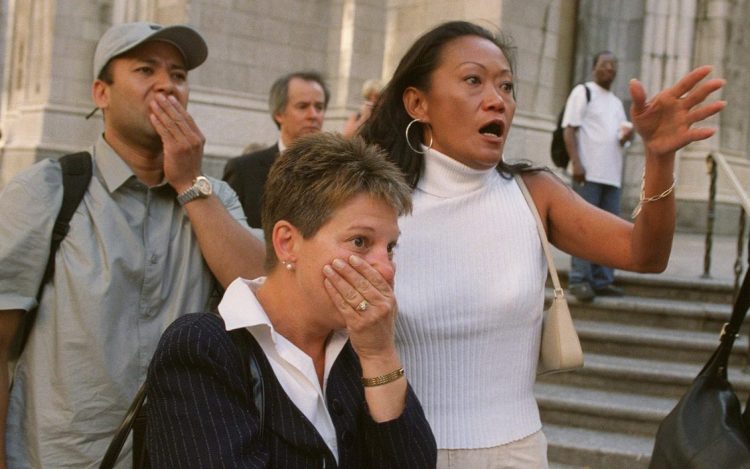This year’s crop of high school seniors have more than a diploma waiting for them. They will also have the distinction of being part of the first group of Americans to reach adulthood having lived their entire lives after the terrorist attacks of Sept. 11, 2001.
They have no memory of what they were doing that morning, or in the confusing and emotional days that followed. They didn’t grieve with thousands of families as they learned that a mother, father, sister or brother would never come home again, and they weren’t awed and inspired by the heroes who gave their lives that day to save others.
More importantly, these young people have no experience of the world before 9/11. They have never lived for a single day in a country that was not at war, or one where civilians weren’t constantly reminded that they could be a terrorist’s next target.
Before 9/11, America was the world’s only superpower. The Cold War ended when millions of ordinary people toppled the decrepit Soviet Union and its satellites in a series of non-violent revolutions. The people in the streets wanted democracy, rule of law, freedom of speech and religious practice. Given the choice, it seemed, everyone in the world wanted to be like us.
Since that day 17 years ago, those optimistic assumptions have been worn down.
Our attempted liberation of Iraq brought chaos to the Middle East. Post-Soviet Russia is a ruthless adversary, not an ally. Democratic elections have become the vehicle for authoritarian advances in places like Hungary and Poland.
And the values that we projected to the world have taken a hit.
After 9/11, we demanded that the government keep us safe and prevent the next terrorist attack, not just respond to it. That meant creating a surveillance state capable of identifying evildoers before they could strike. Warrantless wiretaps and data collection without probable cause at home treated the whole population as suspects. Overseas, “black sites,” “rendition” and “enhanced interrogation techniques” tarnished our claim that we were different.
Our commitment to religious freedom turned out to be limited when it came to one faith – Islam. Anti-Muslim rhetoric went mainstream, while anti-Muslim hate crimes continued to rise.
We sent more than 3 million men and women overseas to fight in what amount to civil wars in Iraq and Afghanistan. We were not prepared for the length of their commitment, or the kind of transitional services they would need when they came home.
And somewhere along the way, we turned inward. Instead of inspiring the world with our politics, these days we reflect the kind of tribalism that has torn other countries to shreds.
This year’s high school seniors, and the ones who come after them, will come of age in a world that was changed by the terrorist attacks of Sept. 11, 2001.
We’re counting on these young adults to change the world again – this time, for the better.
Send questions/comments to the editors.



Success. Please wait for the page to reload. If the page does not reload within 5 seconds, please refresh the page.
Enter your email and password to access comments.
Hi, to comment on stories you must . This profile is in addition to your subscription and website login.
Already have a commenting profile? .
Invalid username/password.
Please check your email to confirm and complete your registration.
Only subscribers are eligible to post comments. Please subscribe or login first for digital access. Here’s why.
Use the form below to reset your password. When you've submitted your account email, we will send an email with a reset code.